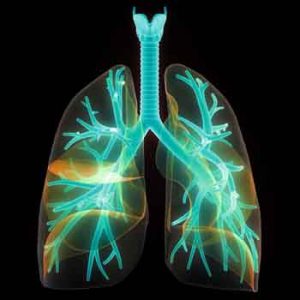
More evidence that low-calorie sweeteners are bad for your health
Studies show that artificial sweeteners can raise the risk of hypertension, metabolic syndrome, type 2 diabetes and heart disease, including stroke.

Natural Health News — Taking 50mg per day of vitamin E could help decrease the risk of pneumonia in smokers, and ex-smokers, according to Finnish researchers.
Because of the damage it does to the lungs, people who smoke – or who have formerly smoked – are at greater overall risk of developing pneumonia.
Dr. Harri Hemila from the University of Helsinki studied whether vitamin E supplementation might lower this risk. Using data from a larger trial of supplement use which was conducted in Finland between 1985-1993 he looked particularly at a group of 7469 male smokers aged from 50 to 69 years.
Lifestyle counts
Results showed that there were several variables which influenced the effectiveness of vitamin E supplementation. The age at which a man started smoking was one of these. For example, vitamin E decreased the risk of pneumonia by 35% in those men who had started smoking at a later age, at 21 years or older, whereas the vitamin had no apparent benefit for those who had started to smoke at a younger age.
» Because of the damage it does to the lungs, people who smoke – or who have formerly smoked – are at greater overall risk of developing pneumonia.
» There is conflicting evidence in the available research about whether vitamin E supplementation can help protect against pneumonia.
» This study of elderly male smokers suggests that vitamin E at 50mg per day does have a protective effect, but that this effect depends on circumstances such as how much the men smoked and other lifestyle factors.
Lifestyle and how much you smoke was also influential. Among those who started to smoke at a later age, but were light smokers who exercised regularly, vitamin E supplementation reduced the incidence of pneumonia by 69% and prevented pneumonia in 13% of the participants. That corresponds to one in eight getting a benefit from the vitamin.
Vitamin E did not have a significant effect on those men who smoked heavily or had not been taking exercise.
In men who had quit smoking for a period the incidence of pneumonia was 72% lower – and this benefit was also seen even among those who smoked heavily or did not exercise.
A mixed picture
Previous laboratory studies have shown that the immune system is influenced by vitamin E. In many animal experiments it has been observed that vitamin E offers protection against infections which are caused by viruses and bacteria including pneumonia. Previous studies in humans have not shown consistent effects, though there is evidence vitamin E can help lower risk somewhat. There is evidence that vitamin E supplementation may help reduce the risk of other respiratory infections (which in elderly people can lead to pneumonia), and there is evidence that a diet rich in vitamin E (as opposed to supplements) is also protective.
Hemilä suggests that while the evidence for vitamin E in this study is strong, it is also complex. He notes also that the men in this study had unique life histories, having mostly been born in the 1920s and 1930s, and lived through the World War II years (and thus exposed to stressors and environmental exposures that may have made them more vulnerable to pneumonia).
Nevertheless he says further research on the protective effect of vitamin E is warranted.
The study was published in the journal Clinical Interventions in Aging.

Please subscribe me to your newsletter mailing list. I have read the
privacy statement